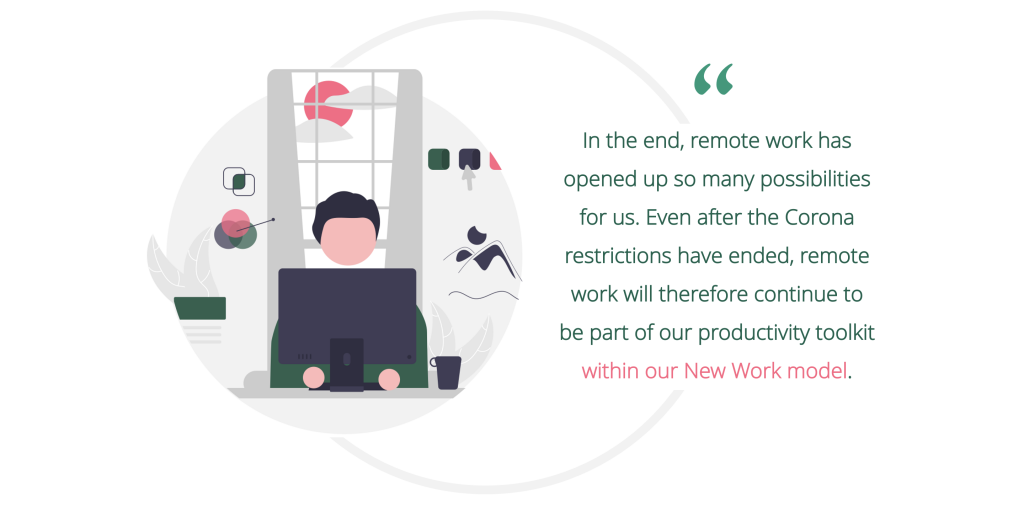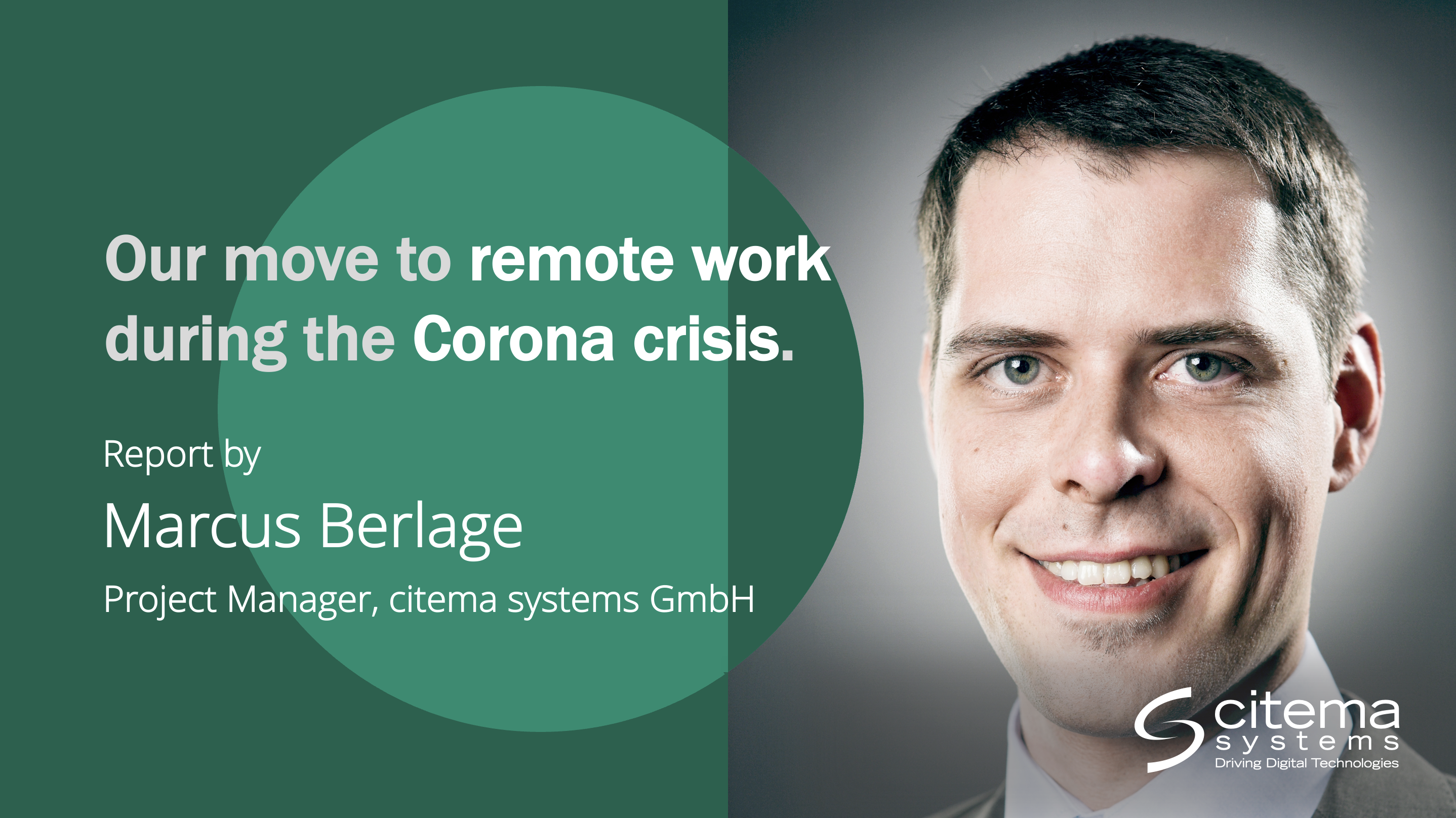The last year and a half had a significant impact on how we work together as a team. Like most companies, we changed overnight from our usual on-site working environment in the development center to an almost 100% remote work environment. Everyone had to adapt to these changes, and everyone experienced the various aspects of the new situation differently, depending on their personalities and preferences. And today, in the midst of the fourth Corona wave, remote work is more relevant than ever.
So how did we at citema deal with this change, what were the biggest challenges and opportunities – After 1.5 years of Corona, we are taking stock.
GOOD PREPARATION IS HALF THE BATTLE
As a company for new technologies, and also because we had already worked remote before this exceptional situation, depending on the project situation, our internal processes and IT infrastructure had already been available and tested for a long time. Therefore, the sudden comprehensive start of remote work has not been such a great challenge, at least as far as the technical framework was concerned. We already had a big advantage at citema, which was not the case for many other companies that were already reaching their limits here.
Our team was already working with a well-implemented SCRUM process, which allowed communication to continue smoothly.
In addition, we had already introduced a wiki and used it in the team long before the pandemic. This very comprehensive knowledge documentation contributed greatly to making information available to all team members anytime and anywhere.
The real challenge was therefore not apparent at the beginning of the changeover to 100% remote work.
After a few days, however, the first quiet realization crept in – we all had to make a much greater effort to participate more frequently and actively than before in communication within our team. Suddenly, it was no longer possible to have lunch with colleagues, meeting for a brief chat in the kitchenette, or simply drop by another developer’s desk to discuss a problem spontaneously and in person. The casual exchange of information was suddenly limited.
OUR LEARNINGS
Especially new team members who started their job remotely had a hard time getting to know their new colleagues and getting a feeling for the culture within the team in addition to the official information, which you can only get in a personal exchange. Here, adjustments had to be made quickly. By introducing daily video calls and simple but effective onboarding rules, we were able to successfully address this problem.
So the key to a successful transition and coping with the new remote work situation was communication. And still, 1.5 years later, we keep this in mind every day and actively remind ourselves that we are not alone when we work from home. As project managers, we also try to constantly push this message to the team: When we’re faced with a difficult problem or simply need someone to talk to, our colleagues aren’t a desk away like they used to be, they’re now just a call away. And that works equally good.

The last few months have also made us realize the great opportunities the new situation has to offer. We now have colleagues who work hundreds of kilometers away and yet are very close to us thanks to the newly established communication culture. Not to mention the flexibility we have gained when it comes to balancing our professional and private lives. In the end, remote work has opened up so many possibilities for us. Even after the Corona restrictions have ended, remote work will therefore continue to be part of our productivity toolkit within our New Work model.
Report: Marcus Berlage, Project Manager at citema GmbH
Since 2020, Marcus has been leading a larger, steadily growing development team at citema. In his very first month at citema, he took the lead in managing the seamless transition of his teammates to remote work. In doing so, he built on his years of experience in project management. Today, his team operates completely remote with great success.
